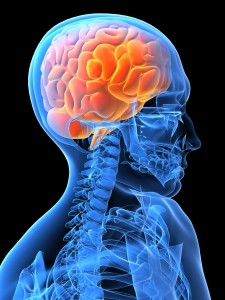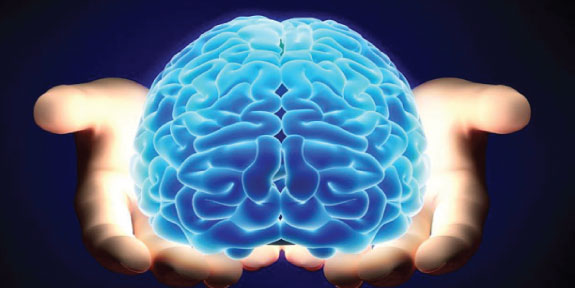On one hand, most neuroscientists now say, “our sense of self is a neuronal illusion.” On the other, they say, “But we make our own purposes, and they’re real.” They can’t have it both ways.
 If the self is not real, then the entity that supposedly ‘makes its own purposes’ cannot be real. Neuroscientists are both deconstructing the ‘neuronal illusion’ of the self, by rightly reducing it to biological processes, and wrongly promoting it, by talking about ‘building a self and making our own purposes.’
If the self is not real, then the entity that supposedly ‘makes its own purposes’ cannot be real. Neuroscientists are both deconstructing the ‘neuronal illusion’ of the self, by rightly reducing it to biological processes, and wrongly promoting it, by talking about ‘building a self and making our own purposes.’
This is the core contradiction of the field, and it cannot be resolved by an appeal to reason and science. That can only sustain the vicious circle, and continue to elevate, by leaving no alternative, the very thing neuroscience is showing doesn’t actually exist.
It seems a little absurd to write about the existence of the self when the personal is palatial, and narcissism is all the rage. To be sure, the self is a driver of motivations and images, but in itself, it is essentially a mechanism for action in separation. Motivations are more real than the self, and below the matrix are the biological drives of hunger and sex.
The construct of the self appropriates our biological drives, and turns them into desires, which are often very powerful motivators. What is beyond a sense of separate self, thinking it’s in control, or the illusion of control, thinking it’s a separate self?
The biological drives of hunger and sex are filtered through the self, which include desire, motivation and control. To understand oneself, one has to not only examine one’s motivations, but also look at the phenomena of separation, desire and control.
The question becomes, is it possible to operate effectively in the world without the ‘neuronal illusion’ of the self?
At best, the self is an organizing principle for the chaos of thought and society; at worst, the ego is a destroyer of worlds. In short, separation is the first illusion; the sense of self derives from it the second; and control of our environments and other people a third. Remove one of these psychological pillars, and the false structure begins to healthily dissolve.
That’s not what is happening however. The psychological edifice upon which Western and world civilization has been built is collapsing under its own rotten weight, and people around the world are reacting by accentuating the smallest, seemingly irreducible unit—me, myself and I. Individualism, which used to be an American quirk, has become the fundamental quark of global society.
The self, however it is construed and constructed, has its roots in the mistake of psychological separation. And since  the self is the first psychological separation (division from that point on), it is therefore the actual ‘original sin.’
the self is the first psychological separation (division from that point on), it is therefore the actual ‘original sin.’
Without the baggage of Christian or Islamic morality, a ‘sin’ is as its root meaning suggests—a mistake. It may be a very deep mistake, such as murdering another human being, whether personally, or in wars between nations or gangs (which are essentially the same), but it is a mistake nonetheless.
In short, the self is a construct that has outlived its usefulness. And not just because neuroscience is demonstrating that it’s a ‘neuronal illusion.’ More importantly, and much more pressingly, the unexamined conflation of the human mind’s capability for utilitarian separation, which enables humans to grow crops and build canals, bridges and houses, with psychological division, which enables humans to generate sectarianism, war and suffering, has to be clarified at the emotional level.
For both science and spirituality, the question and crisis turn on the observer. Science cannot be done if there is no observer to observe, measure and experiment. But inner growth cannot occur as long as the separation as the observer is taken as an actuality.
Can separation and the observer can be provisionally accepted for doing science, and for setting goals and organizing one’s daily life, but held lightly and let go in observing the movement of nature and thought during leisure? In this way, the human capability of separation isn’t carried over into the psychological realm, where it becomes division, conflict and fragmentation.
Ending psychological division (as contrasted with utilitarian separation and science) is not an option, a luxury for contemplatives and philosophers to pursue at their allegedly unproductive leisure. Given the crisis of consciousness and the hellacious state of the world, it is the first responsibility of the awakening human being.
When passive watchfulness catches thought in the act of dividing itself from itself as the observer, the illusory  separation of self falls away. Then, in effortlessly sustaining attention out of curiosity, sensitivity and the urge and intent to see things as they are within and without, the mind-as-thought falls silent, and the infinite silence of the mind-without-thought is.
separation of self falls away. Then, in effortlessly sustaining attention out of curiosity, sensitivity and the urge and intent to see things as they are within and without, the mind-as-thought falls silent, and the infinite silence of the mind-without-thought is.
When the observer ends is there the self? Since the essence of the self is separation, when the observer ends, the self effectively ends, if only for whatever period the mind/brain remains in a state of attentiveness. Thought may continue operating in the brain, but with self-sustaining (not by the self!) attention, a movement of undirected and unwilled negation begins, quieting the mind completely.
Can children be shown, as they develop, how not to make this mistake of fabricating a fixed self, the precious ‘me’ of consumeristic society? Of course they can, but adults have to teach by doing, and show by their attentive example.
Martin LeFevre

